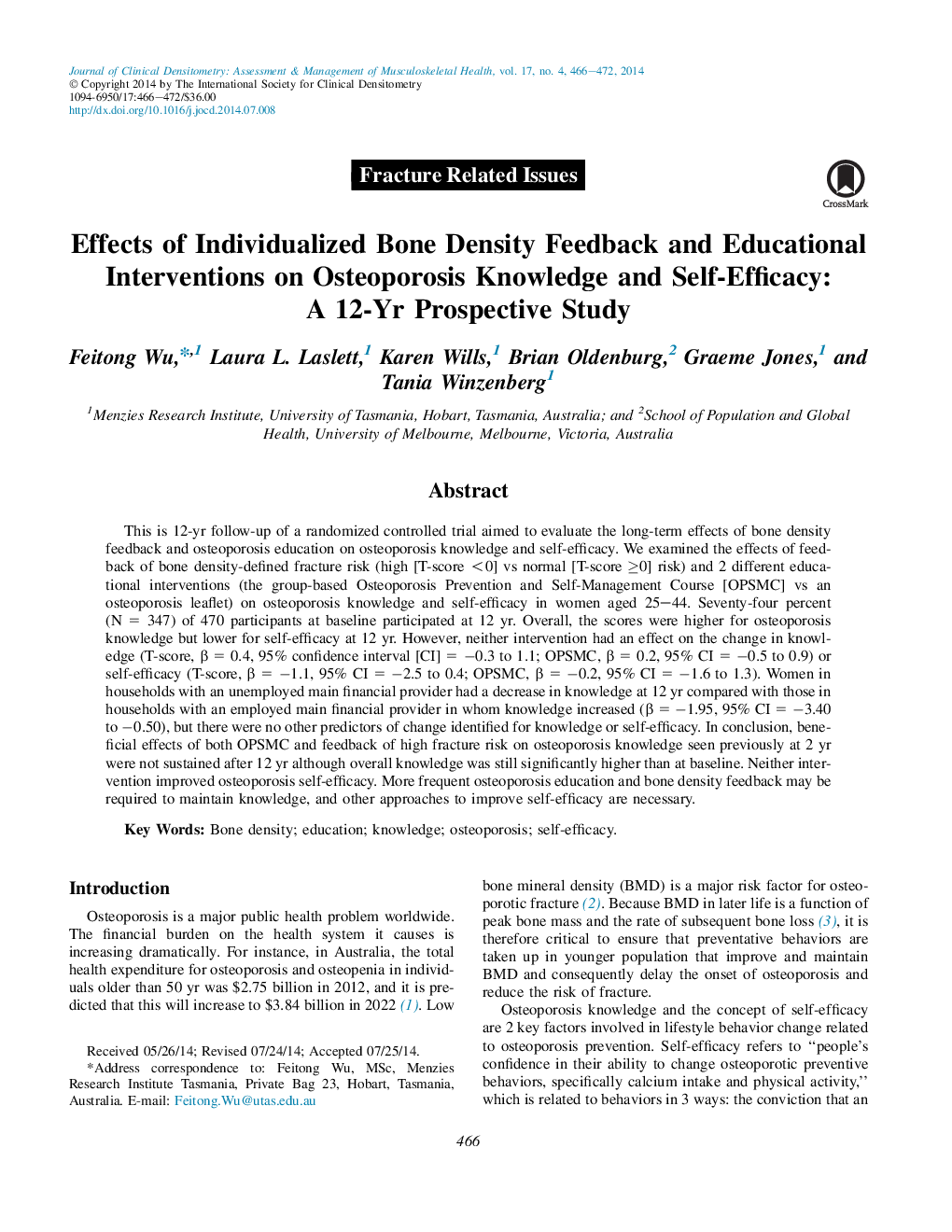| Article ID | Journal | Published Year | Pages | File Type |
|---|---|---|---|---|
| 10168109 | Journal of Clinical Densitometry | 2014 | 7 Pages |
Abstract
This is 12-yr follow-up of a randomized controlled trial aimed to evaluate the long-term effects of bone density feedback and osteoporosis education on osteoporosis knowledge and self-efficacy. We examined the effects of feedback of bone density-defined fracture risk (high [T-score <0] vs normal [T-score â¥0] risk) and 2 different educational interventions (the group-based Osteoporosis Prevention and Self-Management Course [OPSMC] vs an osteoporosis leaflet) on osteoporosis knowledge and self-efficacy in women aged 25-44. Seventy-four percent (N = 347) of 470 participants at baseline participated at 12 yr. Overall, the scores were higher for osteoporosis knowledge but lower for self-efficacy at 12 yr. However, neither intervention had an effect on the change in knowledge (T-score, β = 0.4, 95% confidence interval [CI] = â0.3 to 1.1; OPSMC, β = 0.2, 95% CI = â0.5 to 0.9) or self-efficacy (T-score, β = â1.1, 95% CI = â2.5 to 0.4; OPSMC, β = â0.2, 95% CI = â1.6 to 1.3). Women in households with an unemployed main financial provider had a decrease in knowledge at 12 yr compared with those in households with an employed main financial provider in whom knowledge increased (β = â1.95, 95% CI = â3.40 to â0.50), but there were no other predictors of change identified for knowledge or self-efficacy. In conclusion, beneficial effects of both OPSMC and feedback of high fracture risk on osteoporosis knowledge seen previously at 2 yr were not sustained after 12 yr although overall knowledge was still significantly higher than at baseline. Neither intervention improved osteoporosis self-efficacy. More frequent osteoporosis education and bone density feedback may be required to maintain knowledge, and other approaches to improve self-efficacy are necessary.
Related Topics
Health Sciences
Medicine and Dentistry
Endocrinology, Diabetes and Metabolism
Authors
Feitong Wu, Laura L. Laslett, Karen Wills, Brian Oldenburg, Graeme Jones, Tania Winzenberg,
